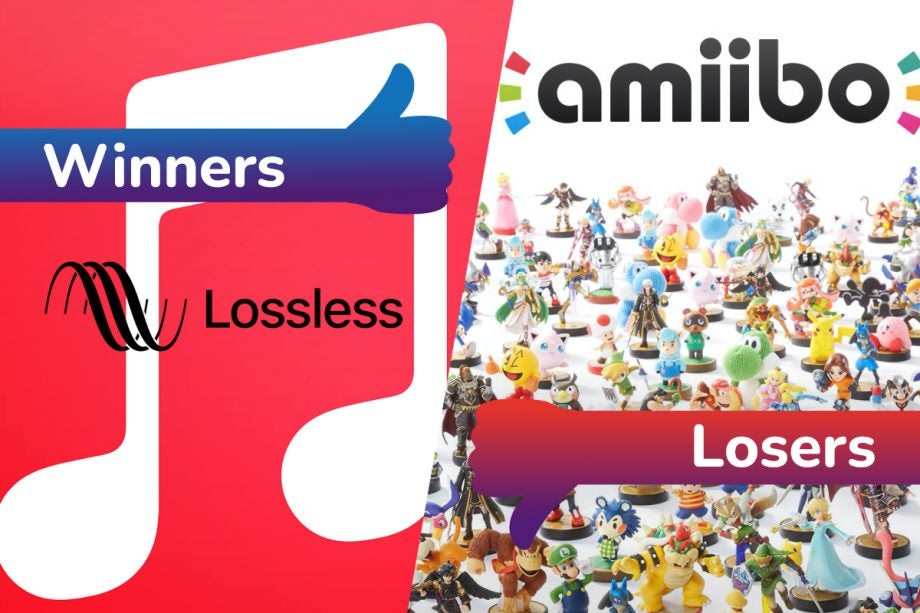Winners and Losers: Apple Music goes lossless while Nintendo’s Amiibo gaffe sparks outrage

It’s once again time to round out the week by picking two of the biggest stories that had us nodding and shaking our heads in equal measure. Welcome to Trusted Reviews’ Winners and Losers.
Well, it’s been quite the week hasn’t it? Things kicked off with Google ripping up the Android design book and announcing Material You – a new visual style that’ll come first to Pixel phones later in the phone.
Google could also finally be able to crack Android smartwatches, with the news that it is teaming up with Samsung to make WearOS actually usable. The companies will also add Fitbit integration to hopefully improve the fitness side of things.
Oh, and keeping with the smartwatch theme alleged renders of the Apple Watch 7 appeared this week and we’re sure you’ll agree it looks pretty special.
But, the two stories that really sparked conversation at Trusted Reviews HQ this week revolve around a big change to Apple Music and an odd move by Nintendo.

Winner: Apple adds improved audio quality to Music for free
It’s been heavily rumoured for ages that Apple would join Amazon, Tidal and many others in offering higher quality audio support in its Music streaming app and this week that finally came to be.
Coming in June, Apple Music will stream your tunes in much higher quality and that’s why it stands out as the winner this week.
The same price point remains, but subscribers will now get access to tracks in 16-bit/44.1kHz all the way to Hi-Res lossless files at 24-bit/192kHz.
Apple also announced that Spatial Audio with support for Dolby Atmos is coming to Apple Music with the update too.
This is of course excellent news, and it’s better that the upgrade comes as standard rather than as a paid extra. There remain some issues about compatibility with AirPods though – but hopefully we’ll learn more before the full launch in June.

Loser: Nintendo swoops in with a horrific cash grab
As much as it pains me to say, particularly as a longtime fan of Nintendo, the company does engage in some bizarre business tactics from time to time.
For every feature packed first-party title like Breath of the Wild, you’ll also see the company charge £50 for three retro titles and make the whole bundle a timed digital release (see Super Mario 3D All-Stars). Well, Nintendo’s back at it again and this time the company’s roped in its popular Amiibo franchise into some controversy.
Die-hard Switch owners will already know that a remaster of The Legend of Zelda: Skyward Sword is headed towards the console with a release date of mid-July. As you might expect, advertising for the game has started to ramp up and one of the things Nintendo has been keen to draw attention to is the new Zelda and Loftwing amiibo figurine designed to be used in conjunction with the game.
So what functionality does this figurine have? When activated, this Amiibo can let you fast-travel from any point in the game, as opposed to only letting you fast-travel from specific points throughout the game’s map.
If you played the game when it first launched on the Wii, or even read a review, then you might remember that one of the main criticisms of Skyward Sword was the constant backtracking – an issue that would be fixed with the very feature locked behind this Amiibo.
In classic Nintendo style, the Skyward Sword remaster already costs £50, while the Zelda and Loftwing Amiibo will set you back another £25, so if you want to play a genuinely improved version of the game then you’re looking at forking out about £75 in total.
These practices just seem like a horrific cash grab to me, and it highlights the oddity of Nintendo’s approach to remastering old games, particularly at a time when we’ve just seen the entire Mass Effect trilogy re-released for almost the same price as Skyward Sword on its own. Come on Nintendo, you can do better than that.


